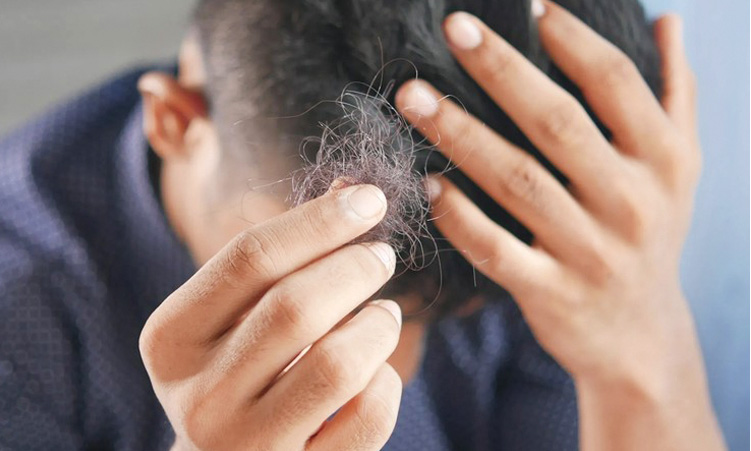Hair loss can be a distressing experience that can impact self-esteem and overall confidence.
While some degree of hair shedding is normal, excessive hair loss can be concerning and may signal underlying health issues or lifestyle factors.
Fortunately, there are effective strategies you can adopt to prevent hair loss and promote healthy hair growth.
Maintain a balanced diet
Nutrition plays a significant role in hair health and a well-balanced diet rich in essential vitamins and minerals can help prevent hair loss.
These are the key nutrients needed:
- Protein: Hair is primarily made of protein (keratin). Ensure adequate intake by consuming lean meats, fish, eggs, beans and nuts.
- Iron: Iron deficiency can lead to hair thinning. Include iron-rich foods such as spinach, lentils and red meat in your diet.
- Omega-3 fatty acids: These healthy fats nourish hair follicles and promote scalp health. Incorporate fatty fish, flaxseeds and walnuts into your meals.
- Vitamins: Pay attention to vitamins A, C, D and E, as well as biotin and zinc, which are crucial for hair growth.
Stay hydrated
Proper hydration is vital for overall health, including hair health.
Dehydration can lead to dry, brittle hair that is more prone to breakage.
Practise gentle hair care
How you treat your hair can significantly affect its health. Implement these gentle hair care practices:
- Avoid excessive heat: Minimise the use of heat styling tools like blow dryers, curling irons and straighteners. When necessary, use a heat protective spray.
- Choose the right products: Opt for sulphate-free shampoos and conditioners that suit your hair type. Avoid products with harsh chemicals that can strip the hair of its natural oils.
- Limit washing: Washing your hair too frequently can lead to dryness. Depending on your hair type, aim to wash every two to three days.
- Use a wide-toothed comb: After washing, gently detangle your hair with a wide-toothed comb to prevent breakage.
Avoid tight hairstyles
Tight hairstyles, such as braids, ponytails or buns, can cause traction alopecia, a condition resulting from constantly pulling your hair.
Give your hair regular breaks from tight styles to allow your scalp and follicles to recover.
Consider scalp health
A healthy scalp is crucial for optimal hair growth.
Maintain good scalp hygiene by regularly cleansing and exfoliating to remove dead skin cells and excess oil.
Essential oils, such as peppermint and rosemary, can also stimulate blood flow to the scalp when diluted and massaged in.
Consult a professional
If you notice significant hair loss, it’s essential to consult a healthcare professional or dermatologist.
They can help identify any underlying health conditions, such as hormonal imbalances or nutritional deficiencies.
Stay informed with The Namibian – your source for credible journalism. Get in-depth reporting and opinions for
only N$85 a month. Invest in journalism, invest in democracy –
Subscribe Now!






